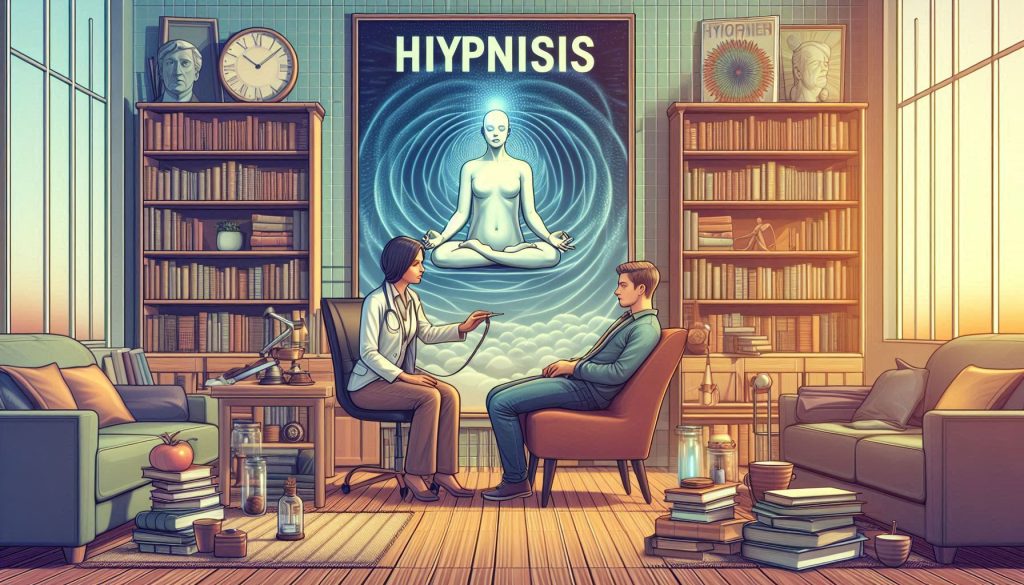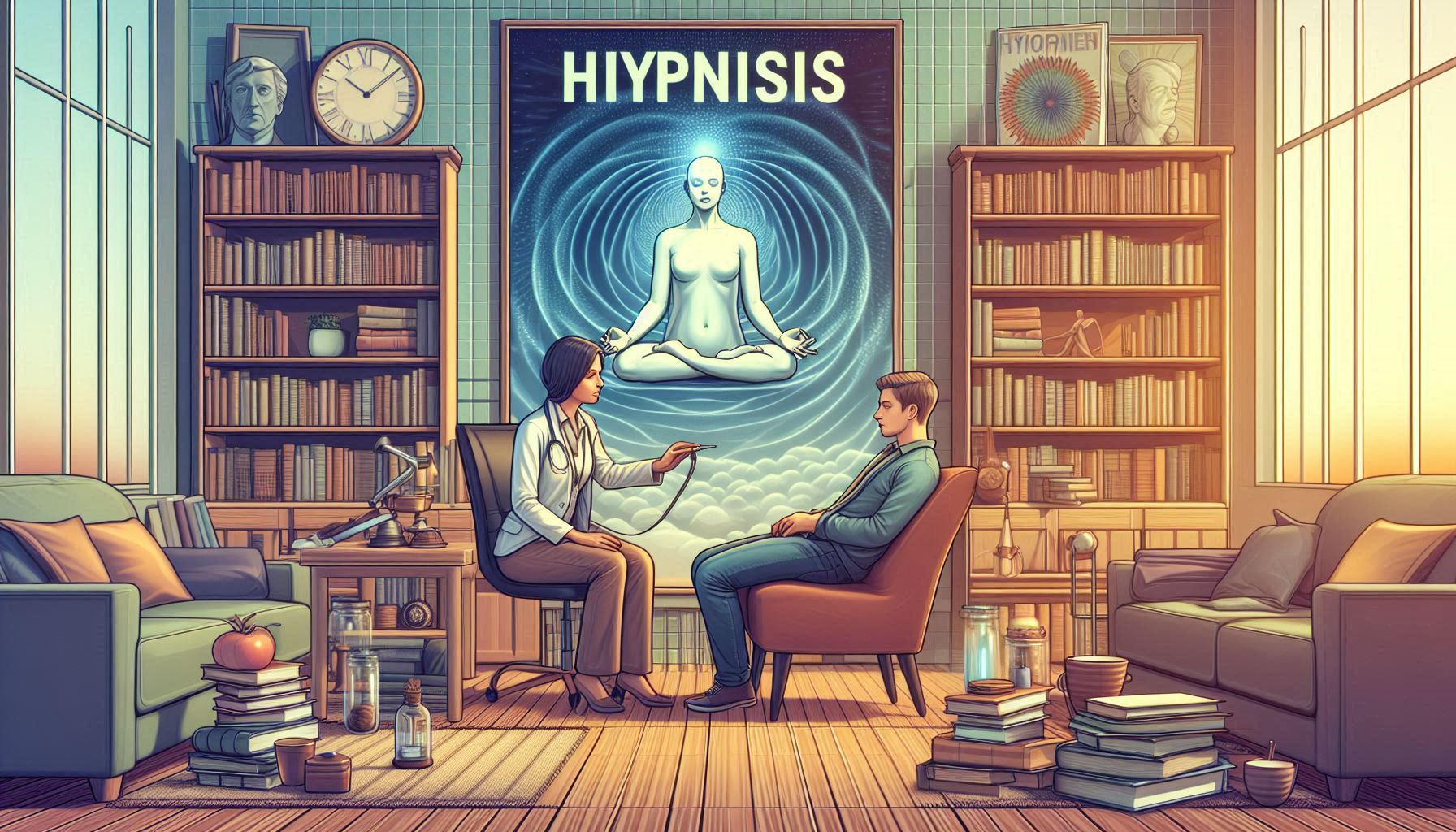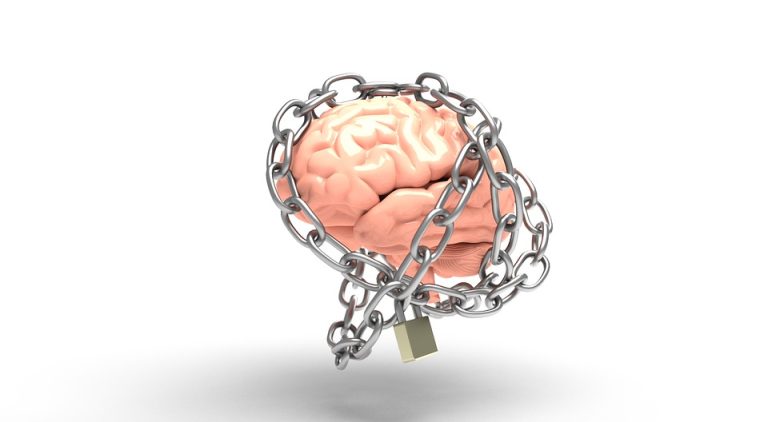
Discover the truth about hypnosis – what it is, how it works, its benefits, and how it’s used in therapy.
Introduction to Hypnosis
Have you ever seen someone fall asleep instantly after a swinging watch or obey every command of a hypnotist on stage? That’s the dramatic version of hypnosis we often see in movies or shows. But in real life, hypnosis is much more powerful and useful than just entertainment.
Hypnosis is a natural state of focused attention and deep relaxation, where the mind becomes more open to suggestions. It’s not magic, and you don’t lose control. Instead, it’s a scientific process that helps people access their subconscious mind and create positive change.
From overcoming fears to quitting bad habits, hypnosis has been helping people for centuries. Let’s explore what hypnosis really is, how it works, and how you can benefit from it.
What is Hypnosis?
Hypnosis is a trance-like state of consciousness where a person experiences focused attention, deep relaxation, and heightened suggestibility. During hypnosis, you are not asleep or unconscious – instead, your conscious mind takes a backseat, and your subconscious becomes more active.
The subconscious is the part of your mind that controls automatic behaviors, emotions, habits, and memories. Hypnosis allows you to communicate directly with the subconscious, helping you change unwanted thoughts and behaviors.
Key features of hypnosis:
- You are aware and alert.
- You are relaxed and calm.
- You can choose to accept or reject suggestions.
- You return to normal awareness after the session.
A Brief History of Hypnosis
Hypnosis has been used for thousands of years in different forms. Ancient Egyptians and Greeks used “sleep temples” for healing purposes. Indian yogis practiced deep meditation to reach trance states.
In the 1700s, Franz Mesmer, a German doctor, made hypnosis popular in Europe by using “animal magnetism.” Though his methods were controversial, his work laid the foundation for modern hypnosis.
In the 1800s, James Braid, a Scottish surgeon, gave hypnosis its scientific name and proved that it was not magic, but a mental state.
Today, hypnotherapy is a respected technique used by psychologists, doctors, and counselors around the world.

How Does Hypnosis Work?
During hypnosis, the brain enters a state similar to daydreaming or deep focus. This allows the conscious mind to relax while the subconscious becomes more receptive.
A trained hypnotist or therapist uses verbal suggestions, guided imagery, and calming techniques to help you enter this state. Once you’re relaxed and focused, the therapist introduces positive suggestions related to your goals – such as quitting smoking, losing weight, reducing stress, or building confidence.
These suggestions bypass the critical part of the mind and go directly into the subconscious, where they can begin to take root and influence behavior.
Hypnosis is often described as feeling like:
- A peaceful, dream-like state
- Deep mental focus without distraction
- A floating or heavy sensation
- Calm awareness without stress

Benefits of Hypnosis
Hypnosis is more than just relaxation. It has many practical uses in health, therapy, and personal development. Some well-known benefits include:
1. Breaking Bad Habits
Hypnosis helps reprogram the subconscious mind to stop habits like smoking, nail-biting, or overeating.
2. Reducing Stress and Anxiety
Through guided relaxation and positive suggestions, hypnosis can lower anxiety levels and promote calmness.
3. Improving Sleep
Hypnosis can help people fall asleep faster, stay asleep longer, and reduce insomnia.
4. Boosting Confidence
Suggestions during hypnosis can change negative self-talk and increase self-belief.
5. Pain Management
Hypnosis is used in hospitals and dental clinics to reduce chronic pain, childbirth pain, and even during surgery (hypnoanesthesia).
6. Overcoming Fears and Phobias
By reaching the root cause in the subconscious, hypnosis can help eliminate deep fears such as fear of flying, heights, or public speaking.
7. Enhancing Focus and Memory
Students and professionals use hypnosis to improve concentration, learning, and memory retention.

Myths and Truths About Hypnosis
There are many myths about hypnosis that cause fear or doubt. Let’s clear up some of the most common ones:
- Myth: You lose control during hypnosis.
Truth: You are always in control. You can stop the session at any time. - Myth: Hypnosis is like sleep.
Truth: You are not asleep. You are mentally alert and aware. - Myth: Only weak-minded people can be hypnotized.
Truth: Most people can be hypnotized if they are willing and open. - Myth: Hypnosis is mind control.
Truth: You cannot be made to do anything against your values or will.
Types of Hypnosis
There are different forms of hypnosis depending on how and why it is used:
- Self-Hypnosis
You guide yourself into a hypnotic state using scripts, recordings, or mental techniques. - Guided Hypnosis
A therapist or hypnotist leads you through the process with voice and suggestions. - Hypnotherapy
A licensed professional uses hypnosis for therapeutic purposes, often to treat mental health or behavioral issues. - Stage Hypnosis
Used for entertainment, where volunteers are hypnotized for fun performances (though real, it is often exaggerated).
Is Hypnosis Safe?
Yes, hypnosis is considered safe when practiced by a trained professional. It has no harmful side effects and is non-invasive. However, hypnosis is not suitable for people with severe mental disorders like schizophrenia or psychosis without medical supervision.
If you’re planning to try hypnosis, make sure to:
- Work with a certified hypnotherapist.
- Be open-minded and relaxed.
- Avoid expecting magic – hypnosis works best when you participate actively.
How to Try Hypnosis at Home
You can experience self-hypnosis at home with these steps:
- Find a quiet, comfortable place.
- Sit or lie down and close your eyes.
- Take slow, deep breaths to relax your body.
- Mentally count backward from 10 to 1.
- Use positive affirmations or visualizations (e.g., “I am confident” or imagining a peaceful beach).
- Stay in this state for 5-15 minutes, then slowly return to full awareness.
There are also many guided hypnosis apps and YouTube videos that can help.
Conclusion: Is Hypnosis Right for You?
Hypnosis is a powerful tool for self-improvement, healing, and mental wellness. Whether you want to overcome a bad habit, reduce stress, or boost confidence, hypnosis offers a natural and effective method.
While it’s not a magic cure, when combined with effort and the right mindset, hypnosis can create lasting changes by tapping into the power of the subconscious mind.
As research continues, hypnosis is gaining respect not only in therapy but also in mainstream medicine. So if you’re curious or struggling with something you can’t change on your own, hypnosis might be the key you’ve been looking for.

Frequently Asked Questions (FAQs)
Q1: Can everyone be hypnotized?
Most people can be hypnotized if they are willing, open, and able to relax.
Q2: Is hypnosis dangerous?
No, hypnosis is generally safe and non-invasive when done by a professional.
Q3: How long does a hypnosis session last?
A typical session lasts between 30 minutes to an hour.
Q4: Will I remember what happens during hypnosis?
Yes, most people remember everything. You remain mentally aware throughout.






